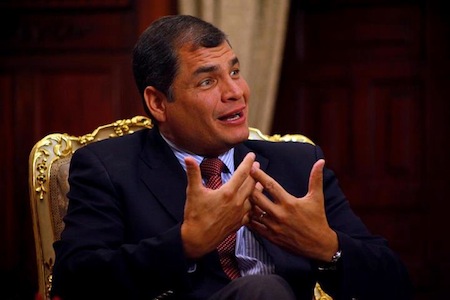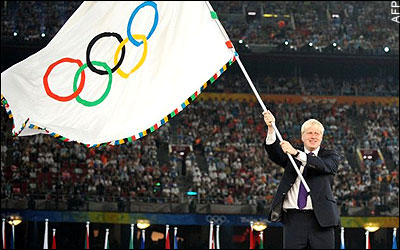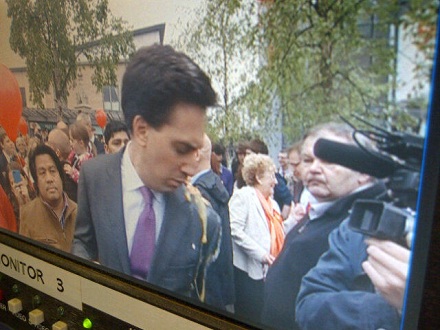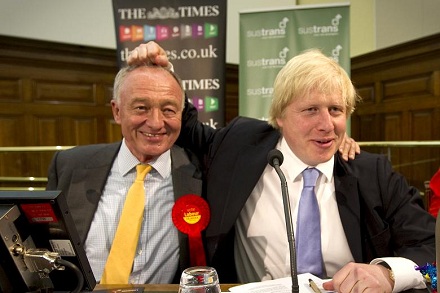They’ve certainly screwed their courage to the sticking place now.
UK prime minister David Cameron has agreed with Scotland’s first minister Alex Salmond on the terms of a referendum, to be held in Scotland in autumn 2014, as to whether Scotland should seek independence or remain part of the United Kingdom of Great Britain and Northern Ireland.
With a newly elected sovereigntist government in the French-speaking province of Québec in Canada, and with the separatist-minded Basque Country set for regional elections this Sunday and the even more separatist-minded Catalunya going to regional polls next month, regional autonomy seems to be mounting somewhat of a comeback on both sides of the Atlantic.
Under today’s ‘Edinburgh agreement’ between Salmond and Cameron, Scottish voters will have the opportunity to vote for independence, ending 305 years as a single nation united with England after the 1707 Act of Union.
The agreement marks a tactical victory for both Salmond and Cameron. Salmond, who had hoped to put off the referendum indefinitely and perhaps beyond the next scheduled general election in 2015, will nonetheless get a delay for nearly two years to make his case for independence, and 16- and 17-year olds will be permitted to vote as well (so 14-year-old Scots, start following Suffragio now).
For his part, Cameron will have succeeded in getting a straight up-and-down vote on the independence question, not a multiple-question referendum on greater autonomy for Scotland, which polls show would be much more likely to succeed than full independence.
Salmond, who is Scotland’s ‘first minister’ — the leader of the regional Scottish government — and whose Scottish National Party in 2011 secured the largest mandate of any regional Scottish election since the 1998 devolution established the Scottish parliament, will lead the campaign for the ‘yes’ vote.
Cameron, the Tory prime minister who won just one seat and a grand total of 16.7% in the 2010 general election in Scotland (finishing last among the four major parties), will lead the campaign for the ‘no’ vote, but he will certainly be joined by Labour leader Ed Miliband and Liberal Democratic leader and deputy prime minister Nick Clegg, whose party serves in the United Kingdom’s governing coalition with the Tories. Since the days of former prime minister Margaret Thatcher, who tried to use Scotland in 1989 as a testing ground for the much-derided ‘poll tax’ that was set to apply nationwide in 1990, Scotland has greeted the Tories with antipathy. So it’s not without some legitimacy that Miliband has argued that only Labour can keep Scotland in the United Kingdom.
As Alex Massie writes for The Spectator, in calling the entire ‘phony war’ leading up to today’s event a queer process (and quite rightly), he notes that Cameron himself, quite a fish out of water in Scotland, may lose the general election currently scheduled for May 2015:
David Cameron slinks in to Scotland almost as though he were the leader of a foreign country already. You would not think he’s merely visiting territory for which he presently holds some responsibility. The optics – as the media handlers say – will favour Mr Salmond today. Why, there will even be signing and swapping of papers further bolstering the impression this is a meeting of equals….
The difficulty is that it is not yet clear what a No vote actually means. It will not necessarily settle the matter, not least since the Prime Minister is on record as being open to “more powers” for Holyrood after the referendum.
That, however, is a discussion upon which he may have little influence. The next Westminster election must be held just six months or so after Scotland’s referendum. David Cameron may – just may – not win that election. Which means that at some point we will need to know what Ed Miliband thinks about Scotland too. What a happy thought that is!
On the surface, then, Salmond seems well placed in the next 24 months to turn around polling data that shows, on a straight ‘union vs. independence’ referendum, Scots support union (as of an Oct. 8 TNS-MRNB poll) by a 53% margin, to just 28% in favor of breaking from the United Kingdom.
Scotland, under Labour prime minister Tony Blair’s devolution policy for Scotland, Wales and Northern Ireland, achieved its own parliament after a successful 1997 referendum, and the Scottish parliament came into being in 1998. The parliament, informally known as Holyrood, the name of the Edinburgh neighborhood in which it is located, is a 129-member unicameral legislature, essentially shares legislation power with the UK parliament in Westminster.
Cameron’s victory in the ‘Edinburgh agreement’ was to limit the options to strictly independence or remaining in the union, rather than allowing for a ‘devomax’ option — maximum devolution that would provide the Scottish parliament even more powers currently reserved for Westminster. Indeed, Cameron seemed to dangle the possibility of further devolution earlier Tuesday in his remarks on the agreement:
Mr Cameron said: “All those who want to see not only the status quo but further devolution from the United Kingdom to Scotland must vote to stay within the United Kingdom. Then it’ll be for all the parties to decide what proposals to put forward, but I’ve always taken the view we have to answer this prior question first. We have to answer the question: does Scotland want to stay in the United Kingdom? If the answer is Yes we do want to stay in the United Kingdom, then obviously further devolution is possible.”
In some senses, though, the limitation to a simple yes-or-no vote raises the stakes — Scots will be bloody well certain to demand guarantees from the parties supporting the ‘No’ vote that additional devolution will result from a successful ‘No’ vote in 2014. Continue reading Scots to vote on independence in 2014 as Salmond and Cameron seal referendum pact






